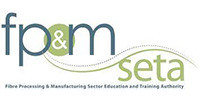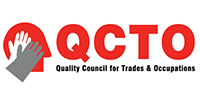First aid course training is an essential to the wilderness and adventure tourism industry. Whether it’s scaling rugged cliffs, navigating roaring rapids, or trekking through dense forests, this industry is one that thrives on excitement, adrenaline and exploration, attracting thrill-seekers looking for unforgettable experiences. However, all of this excitement comes with the undeniable element of risk.
Staff must therefore be prepared to face the reality of injuries medical emergencies, animal attacks and environmental threats, often occurring in remote location far removed from professional medical assistance. This is where a specialized first aid course becomes a crucial asset. Equipping staff and guides with the skills to anticipate, assess, prevent and handle issues not only ensures the safety of participants but also, boosts customer confidence, and helps businesses meet regulatory requirements.
This article will cover eight primary benefits of first aid training in this industry. Each section will provide an overview of a relevant danger and the ways in which first aid course training mitigates it.
Immediate Response in Remote Areas
The bread and butter of this industry includes adventure activities like hiking, rock climbing, whitewater rafting, zip-lining and other thrilling outdoor activities. Other than all being high-adrenaline, nature-filled and challenging, these activities have one more thing in common: they more than often take place far from access to medical facilities.
In this case, it is up to guides and staff to stabilize injuries and manage medical situations, at least until professional help arrives. A first aid course is absolutely essential to this end, covering all of the basic skills needed to keep an injured or ill patient stable.
Managing Common Outdoor Injuries
An unfortunate but also unavoidable aspect of the wilderness and adventure tourism industry is that injuries or exhaustion-related health issues are simply an expected part of the package. The many dynamic and strenuous activities can easily lead to common outdoor injuries such as sprains, fractures, cuts, burns, insect bites, dehydration, or hypothermia.
A proper first aid course will allow staff to easily identity these issues and respond to them quickly and effectively, handling the situation before it further devolves.
Prevention and Risk Management
One of the most effective forms of dealing with injury and illness is to have strong preventative measures in place. A well-trained team of adventure staff will be able to not only handle injuries but also be able to identify factors that may lead to them occurring. In this industry, this might include spotting hazards such as loose rock formations, fast-changing weather or dehydration risks.
Managing Medical Emergencies
One thing that wilderness and adventure tourism staff have to be prepared for is instances where their clients have pre-existing conditions like asthma, diabetes or heart problems. The physically demanding or stressful conditions of many adventure activities pose a high risk of triggering flare ups in these conditions. So far away from medical facilities, the sudden onset of a crisis like this can be disastrous or even deadly.
A first aid course will equip staff with the necessary skillset for recognizing these issues before a flare up and managing them if they do occur.
Dealing with Wildlife-Related Incidents
An essential part of the thrill – and danger – of the great outdoors is wildlife. Whilst most wildlife encountered during wilderness and adventure tourism excursions will be completely harmless, there are distinct exceptions. Snake bites, insect stings, or even animal attacks must be anticipated and prepared for. What’s critically important about events like this is that they require quick and appropriate response to avoid serious complications.
A good first aid course will teach staff about specific local fauna and their unique dangers – such as an introduction to local snakes and their respective kinds of venom – to ensure that staff are prepared for the unique challenges of wildlife-related accidents. Procedures like this also include understanding and combating allergic reactions, especially to insect stings.

Handling Environmental Challenges
Other than flesh-and-blood threats in the form of dangerous animals, the outdoors will realistically provide a greater threat in the form of more nebulous environmental challenges. These will take the form of harsh conditions like heat exhaustion, altitude sickness, hypothermia or drowning risks in water-based activities. These conditions can set in quietly but deteriorate deceptively fast, quickly leading to life-threatening scenarios.
A first aid training course will allow staff to be aware of the factors that might lead to these events occurring, monitor their clients for the onset of these conditions and respond appropriately if they do occur.
Boosting Customer Confidence
Whilst the priority of a first aid course is to empower wilderness and adventure tourism staff to protect and safeguard clients, it cannot be denied that it carries clear benefits to the company itself. If customers know that staff have been properly trained in first aid, visitors will feel safer and more confident, enhancing the reputation of the company and encouraging more people to participate. Conversely, a team of poorly trained staff will do little do inspire confidence in clients and potentially drive away future customers.
Legal and Insurance Benefits
There are other distinct benefits that a first aid course can have on the proper running of and wilderness and adventure tourism company. Many adventure tourism companies are subject to rigorous safety regulations and insurance requirements. Whilst the specifics of these regulations may vary from place to place, the vast majority will require staff to be trained in a first aid. A proper first aid certification will both ensure compliance and reduce liability risks for a company.

Conclusion
A first aid course is not just a helpful addition to the wilderness and adventure tourism industry, rather, it is a fundamental necessity. From handling common injuries to handling life-threatening injuries, having trained staff in an adventure tourism company plays a crucial role in ensuring the safety and well-being of clients in environments both unpredictable and remote.
Beyond the core principle of safeguarding lives, first aid training enhances risk management, enhances customer confidence and even helps companies meet regulatory and insurance requirements. In an industry built on excitement and exploration, being prepared for the unexpected is more than just being responsible – it’s an absolute must. So visit our website today to prepare yourself before your next adrenaline rush.















